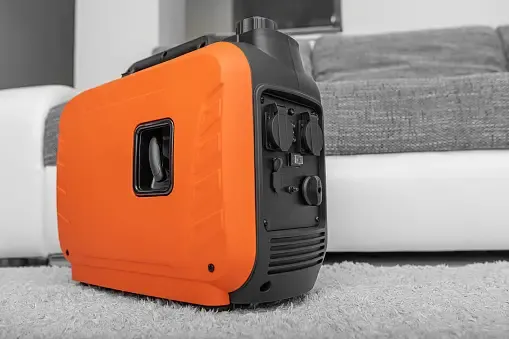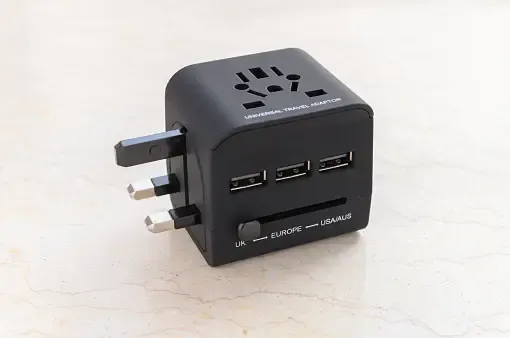
Inverter vs Converter - Difference & Comparison
Inverters and converters are two popular options when setting up a power system for your home. The majority of households feel that both of these are two different sides of the same coin. But how much of this thought is true?
Well, let's compare inverters and converters unbiasedly to better understand their differences and similarities.
What is an inverter?
An inverter is an electrical device that generates electricity/energy. Your solar system creates a direct current that can't be used to operate devices. This is why you add an inverter to the system, which converts the direct current into an alternate current.
These are commonly used in renewable energy systems, such as wind turbines and solar power. However, the complexity might vary depending on the type of circuit, from simple to sophisticated.
Types of inverters
Inverters come in varied types, some of which are discussed as follows:
1.Square wave inverters: As the name suggests, the square wave inverters produce square-shaped waves of the alternate current. They are suitable for all those appliances that can work on low-quality AC power. However, their efficiency could be lower than that of other types.
2.Modified sine wave inverters generate waves from sine waves. They are commonly used in household appliances, power tools, and various electronic devices.
3.Pure sine water inverters: The pure sine water inverter produces continuous waves to supply the power grid. These are ideal for sensitive electronic devices like medical equipment, etc.
4.Grid-tie inverters: These are the most renowned inverters used in renewable energy-generating systems. They synchronize with the grid to ensure efficient energy transfer.
5.Off-grid inverters: Off-grid inverters are not connected to any electrical system for working. This is why they are ideal for remote locations such as small cabins, standalone objects, etc. Furthermore, they are also reliable in areas that need proper grid access.
6.Hybrid inverters combine the off-grid system with a grid connection to function. They can make appliances work with or without a grid connection.
What is a converter?
Converters are similar devices but have slightly different purposes from inverters. Unlike inverters, converters are available in various types, such as AC-to-DC rectifiers, DC-to-DC converters, and AC-to-AC converters.
These are integral to every power system, providing the proper voltage and current levels.
AC-to-AC converters are known as transformers, DC-to-DC converters are called simple converters, and AC-to-DC converters are known as rectifiers.
Types of converter
There are three major types of converters discussed as follows
1.DC to AC converter: This device converts alternate current to another level of alternate current.
2.DC to AC converter: This function is like an inverter, converting direct current into an alternate current.
3.DC-to-DC converters: Also known as choppers, these convert direct current into another voltage of direct current.
The differences between converters and inverters
Inverters and converters both transform voltage from one form to the other. This is why many people need clarification about whether the same device has different names.
While both devices' functions are closely connected, their features differ drastically. The converter turns AC power into DC and can change the voltage level for further usage.
On the other hand, the Inverter can only transform the DC into the AC. That means if you are somewhere where you require a converter to run your appliances, you first need a inverter to charge the battery tank.
Applications of inverters
Here are some of the prominent applications of inverters in different aspects
1. Current conversions
A converter transforms alternate current into direct current. Furthermore, it can also change the current level from one to another. For instance, you can use a converter to convert 110 volts of current into 130 volts of current level.
Nevertheless, inverters transform direct current into alternate current. If appliances are outside the reach of grid access, an inverter can run them.
2. Renewable energy systems
Inverters convert the direct current from solar panels into an alternate current for running appliances. They are also used in wind turbines for a similar purpose.
3. UPS system
Inverters serve as backup power in UPS systems. They ensure that the uninterruptible power supplies have continuous AC power to keep on functioning.
Applicants of converters
Following are the major applications of converters
1. Power supplies
The converters convert alternate current into direct current for multiple purposes. They include electronics, chargers, and other battery-operated devices.
2. Telecommunications
The converters regulate telecom power, making them reliable for operating communication equipment.
3. Consumer electronics
Converters help convert the alternate current from the wall outlets to direct current so that laptops, smartphones, and other devices can get the necessary volts.
Which one should I select?
Now that we have compared both options, the question is how to choose the best device for yourself. An inverter is best if you seek a domestic power system option.
While the multiple types and categories of converters can affect performance, inverters remain focused on generating accurate energy for your space.
However, purchasing it from a renowned source such as Innotinum will only be helpful. With four years of experience, the company offers multiple types of inverters, including the following.
1.IPS- H0 (EU): The total capacity is 6kW to 15 kWh.
2.IPS- L0 (EU): Comes with a total capacity of 3.6kW to 10 kWh.
3.IPS- L0 (US): The total capacity is 6kW to 10 kWh.
All the inverters are composed of really high-quality material and support PC, grid, and power for home usage. In addition, they are multi-communication capable and specifically designed to meet the tailored needs of every household.
To ensure that the inverters do not harm your kids and pets in any way, all three inverters pose multiple protection and detection functions. Thus, you can be rest assured about your family’s complete safety.
Conclusion
On the bottom line, inverters and converters are two popular options when setting up a power system.
The same is why the content above observes an unbiased comparison of Inverter vs. converter, unleashing all the differences and applications. Make sure to consider all the points mentioned above before choosing.


